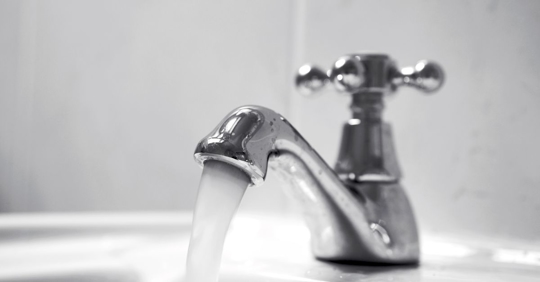Water pressure plays a crucial role in the daily functioning of your home’s plumbing system. While many homeowners enjoy the feeling of strong water flow, excessive pressure can increase your utility bills in unexpected ways. Understanding how water pressure affects your expenses can help you optimize both your plumbing system and your wallet. Read on to learn how water pressure might be costing you and what you can do about it.
What Is Considered Normal Water Pressure?
Water pressure is measured in pounds per square inch (psi). The ideal range for residential water pressure is between 40-60 psi. Anything significantly above this range can create unnecessary strain on your pipes and appliances. High water pressure may feel convenient, especially when showering or washing dishes, but it can lead to costly issues if left unchecked.
How High Water Pressure Drives Up Utility Bills
1. Increased Water Consumption
Higher water pressure means more water flows through your fixtures with every use. For example, a faucet running at 80 psi uses significantly more water than one running at 50 psi. Over time, these small increments in usage add up, leading to higher water bills.
2. Appliance Inefficiency
Appliances like washing machines, dishwashers, and water heaters are designed to perform within specific pressure ranges. If the pressure is too high, these appliances may use more water than intended, reducing their overall efficiency and lifespan.
For instance, a water heater working with excessive water pressure might use more energy to heat a higher volume of water, resulting in higher utility costs.
3. Increased Wear and Tear
High water pressure causes excessive stress on your plumbing system, including pipes, joints, and fixtures. Over time, this leads to leaks and bursts, which not only waste water but also require costly repairs. Fixing damaged pipes or repairing water leaks can add unexpected expenses to your home maintenance budget.
Signs of High Water Pressure in Your Home
If your water pressure is too high, you'll notice several warning signs, including:
- Noisy pipes that bang or thud (commonly known as "water hammer").
- Faucets and fixtures that spray excessively.
- Leaking or dripping taps, even when they're tightly closed.
- Shorter lifespans of water-using appliances.
Regularly monitoring for these signs can help you catch potential issues before they cause significant damage.
How to Test and Manage Water Pressure
Testing Water Pressure
Testing your home’s water pressure is simple and inexpensive. You can purchase a water pressure gauge at a hardware store and attach it to an outdoor faucet. Make sure no other fixtures are in use when conducting the test for accurate results.
If your pressure reads above 60 psi, it’s worth exploring solutions to reduce it.
Installing a Pressure-Reducing Valve (PRV)
A pressure-reducing valve is an effective solution for managing high water pressure. Installed near your home’s main water line, a PRV automatically regulates pressure levels to ensure they’re safe and efficient.
Routine Inspections
Hiring a professional plumber for routine inspections can help you stay ahead of potential problems. A plumber can not only test your water pressure but also ensure your entire plumbing system is functioning correctly.
Does Low Water Pressure Affect Utility Bills?
While high water pressure can be costly, low pressure can also lead to inefficiencies. If water is flowing too slowly, it takes longer to complete everyday tasks like washing dishes or filling your washing machine. This extended use of water increases energy consumption and stretches your utility bills.
If you’re experiencing low water pressure, it’s important to identify the root cause. It could be due to clogged pipes, a malfunctioning pressure regulator, or municipal supply issues.
Take Charge of Your Water Pressure (and Utilities)
Water pressure has a significant impact on your home’s plumbing efficiency and utility costs. Keeping it within the recommended range not only prevents damage to your system but also ensures you’re not paying more than necessary on your bills.
If you’re unsure about your water pressure levels or suspect it’s causing plumbing issues, don’t wait to take action. At Mom & Pop Plumbing, we specialize in diagnosing and fixing water pressure concerns to help you save money and extend the life of your plumbing system.
Contact us today to schedule an inspection or learn more about how we can keep your home running efficiently!

